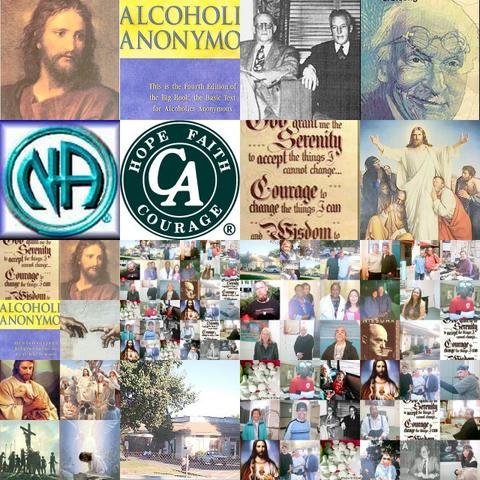On May 11, 1935, Bill W. encountered a threat to his newfound sobriety. During a business trip to Ohio, he found himself standing in the lobby of a hotel, craving a drink. With growing anxiety he contemplated his options.
Bill narrowed his choices to two: order a cocktail in the hotel bar or call another recovering alcoholic and ask for help in staying sober.
Bill knew that this choice came with high stakes. As an alcoholic who had nearly drunk himself to death, he'd endured four hospital stays for "detox." During his last visit he'd hit bottom and cried out for divine mercy: "If there be a God, let him show himself." At that moment, Bill felt a white light blaze through his hospital room. He was seized with "an ecstasy beyond description" and concluded that he was free from any need for alcohol.
But there was no divine blaze in the lobby of the Mayflower Hotel in Akron -- only the dim lights of the bar and the lure of a drink.
Pacing through the lobby, Bill passed the bar and found a church directory. Within minutes he was on the phone with a local minister. A series of calls put him in touch with an alcoholic surgeon named Dr. Bob. Bill arranged to visit the doctor at home.
Dr. Bob initially agreed to see Bill for only 15 minutes, but their meeting lasted for hours. Bill simply told of his drinking history and Bob identified with it immediately. Bill thanked Bob for hearing him out -- for his fellowship. "I know now that I'm not going to take another drink," Bill said, "and I'm grateful to you."
But the relationship did not end there. Bill stayed with Dr. Bob for the next three weeks. Through their friendship, Dr. Bob also gained sobriety. The surgeon never took another drink after June 10, 1935. That day -- Dr. Bob's "dry date" -- is officially counted as the start of Alcoholics Anonymous.
Bill and Bob began working with other alcoholics, helping them achieve sobriety one day at a time. Four years later, they published the book Alcoholics Anonymous, which explained their Twelve Step program of recovery.
Articles about AA started appearing in the popular press, and the group's membership swelled. In 1950, the year of AA's first International Convention, there were about 3,500 member groups.
Today, over 98,000 groups across the world are registered with AA's General Service Office; AA's international membership stands at nearly two million.
AA is the first therapeutic social movement dealing with alcoholism that's outlived its founders and keeps expanding. AA's longevity stems from three factors:
· One is that AA makes no stand on whether beverage alcohol is good or bad. Temperance movements and prohibition tried to label the product as being evil. AA does not.
· A second thing is the spiritual approach. When seeking help, AA asks you to name your own higher power. And your higher power can be different than anyone else's.
· Third, AA's founders laid out a unique plan. Though the organization includes delegates at state and district levels, the local groups remain autonomous. So AA is actually a corporation upside down, with all the authority coming from the bottom.By combining this creative structure with individual freedom of interpretation, AA keeps growing. Originally seen as an enclave of white Christian males, the organization now embraces women, people of color, agnostics and even atheists. And in the core principles of Twelve Step recovery, such as telling the truth, asking for help, and making amends, people keep discovering universal aspects of healing.
Two new biographies of Bill W., including his autobiography, Bill W.: My First 40 Years, have been published by Hazelden. For more information on these and other AA historical items, visit Hazelden's online bookstore or call 1-888-535-9485.
--Published May 22, 2000
--------------------------------------------------------------------------------
Alive & Free is a health column that provides information to help prevent substance abuse problems and address such problems. It is created by Hazelden, a nonprofit agency based in Center City, Minn., that offers a wide range of information and services on addiction. For more resources, email or call Hazelden at 800-257-7810 (outside the US 651-213-4200).
+++++++++++++++++
Related CASA Links:
CASA 12-Steps Program Blog
CASA 12-Steps Recovery Group
The Progressive Recovery Blog!
Recovery Emporium
Humane-Rights-Agenda Blog

No comments:
Post a Comment
Please give feedback with respect!